Need a diplomatic messenger? Switzerland is eager to help
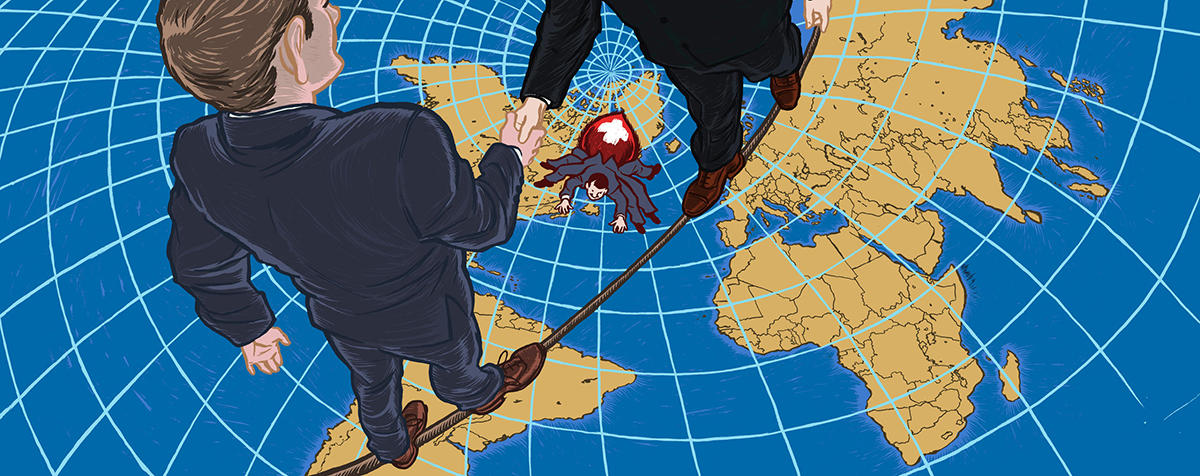
Swiss diplomacy has a long-standing tradition of trying to talk to all sides “to build trust”. The country’s “protecting power” mandates have nearly doubled from four to seven in the last few years. So why is there a new surge of interest in this Swiss good office?
“They come to us and want us to be the mediator between two countries that are no longer talking to each other,” outgoing State Secretary for Foreign Affairs Pascale Baeriswyl recently told swissinfo.ch. She thinks it is a sign of troubled times “because there are a lot of hotspots in the world where countries are starting to downgrade their bilateral relations”.
The Alpine country currently has seven protecting power mandates, according to the official count. The number of Switzerland’s mandates is second only to Sweden’s nine, although all the Swedish ones are limited to North Korea.
With these “powers”, it effectively represents the interests of states that have broken off diplomatic relations with each other. A protecting power mandate usually means taking on some of a state’s consular tasks, such as issuing visas. The mandated country can also facilitate negotiations.
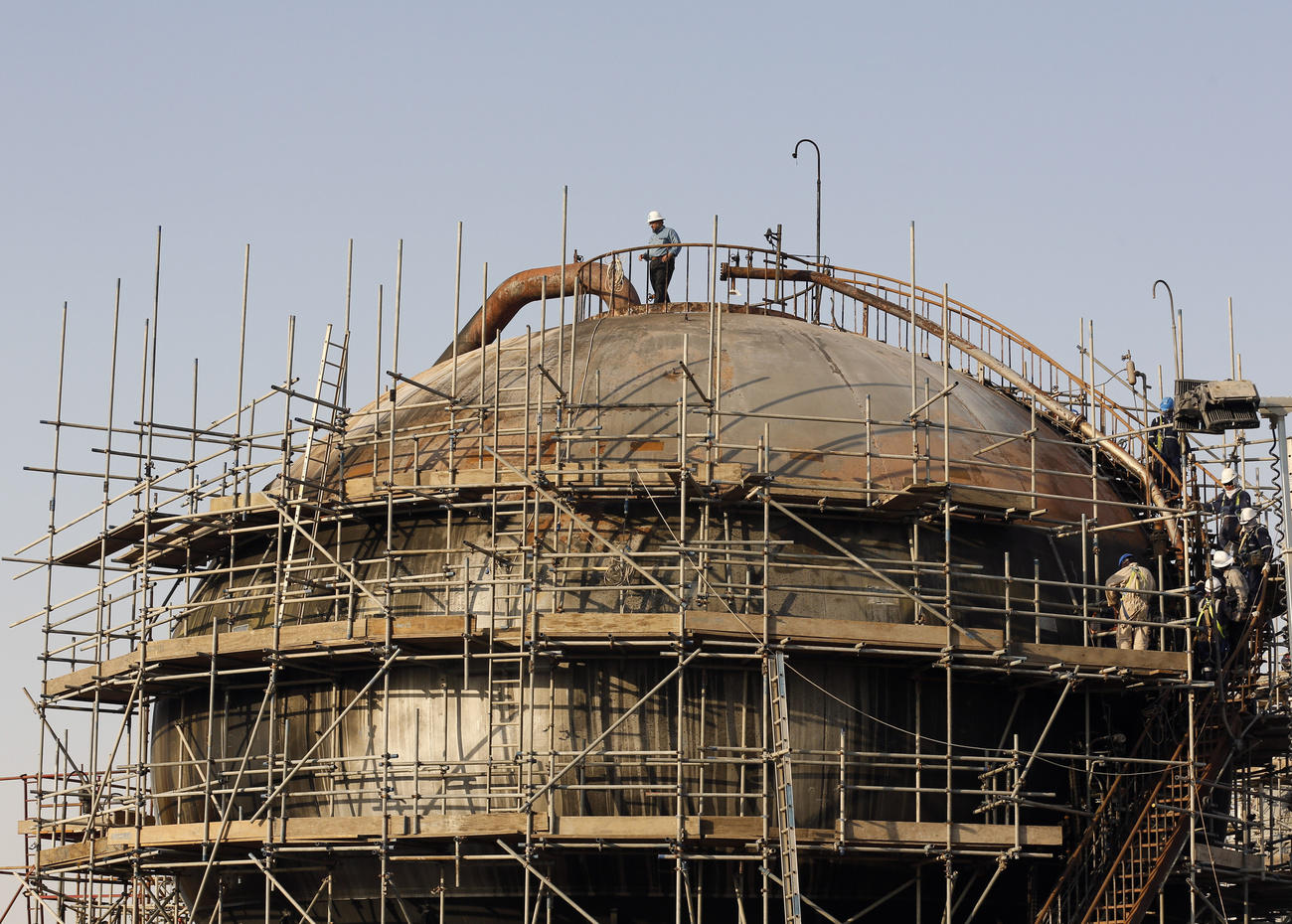
More
What are Switzerland’s good offices good for?
During Baeriswyl’s tenure, Switzerland began representing the diplomatic interests of Saudi Arabia in Iran and vice versa. Switzerland also represents Iran in Canada, and Canada in Iran.
Bern has also signed an agreement to represent the United States in Venezuela, but this last mandate is still waiting for validation by the government of Nicolas Maduro in Caracas, so is not included in the official list.
In addition to these recently added mandates, Switzerland represents Iran in Egypt since 1979, the US in Iran since 1980, Russia in Georgia since 2008, and Georgia in Russia since 2009.
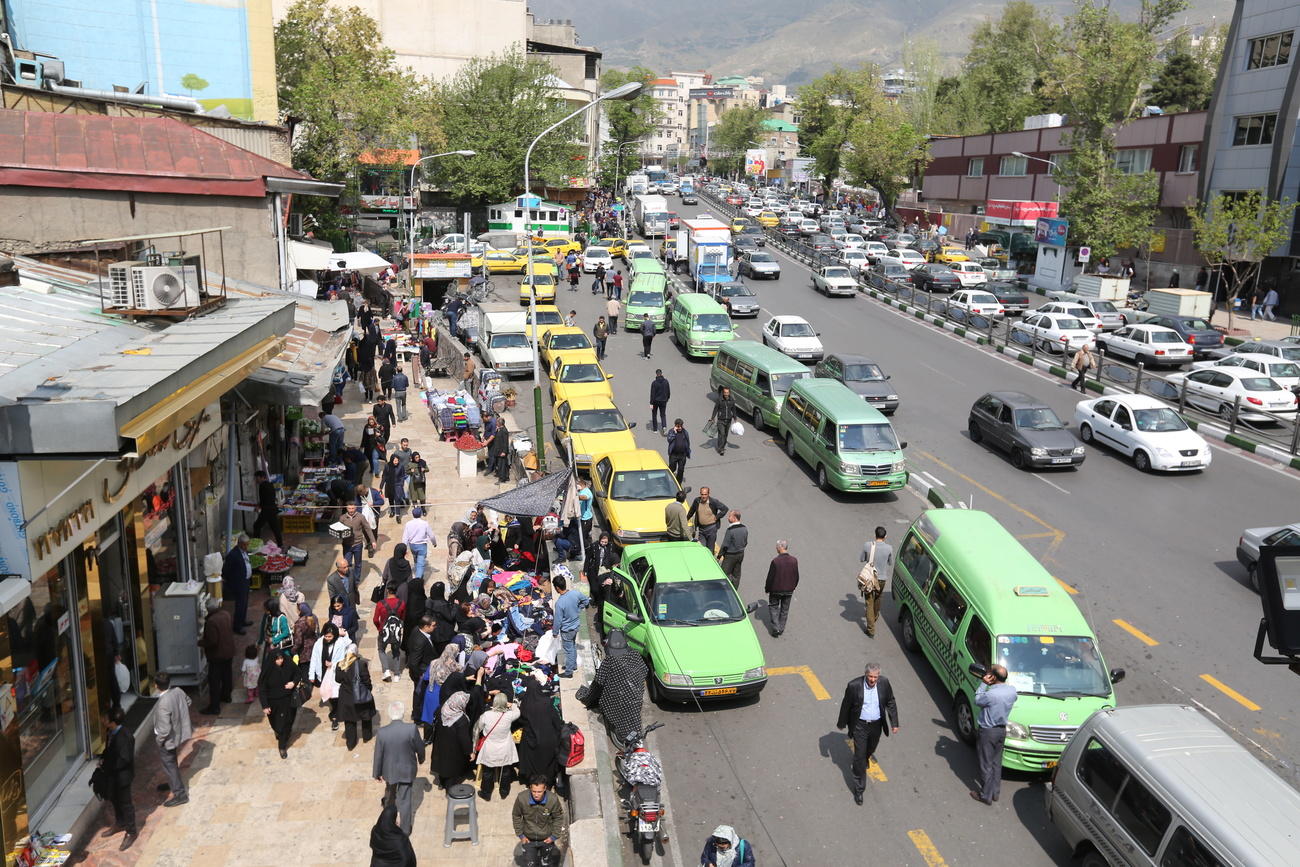
More
Swiss humanitarian channel to Iran seen within months
These Swiss good offices started back in the 19th century. The role steadily grew. During World War II, Bern was juggling 219 mandates, representing 35 governments, including the major warring powers. Both Switzerland and Sweden emerged as favourite protecting powers at that time, owing to their neutrality.
Going back several decades, Swiss diplomats also played a crucial role in defusing the Cuban missile crisis in 1962 and the US hostage crisis in Iran in 1979-81.
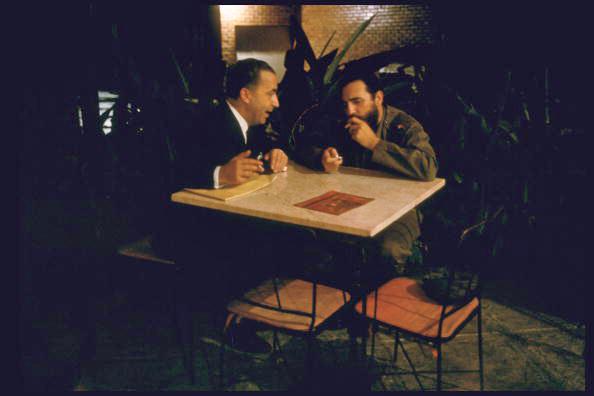
More
Cuba-US: time to lower the Swiss flag – and open banks?
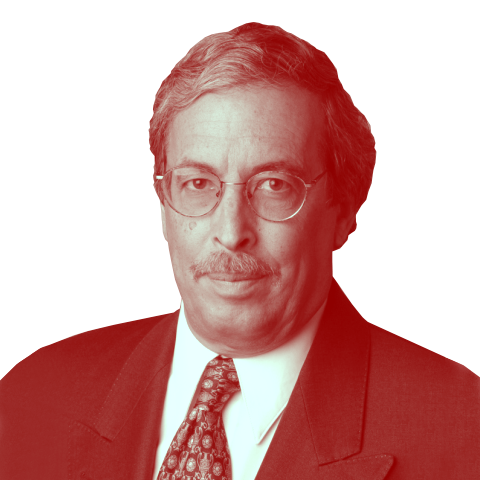
More
Remembering Switzerland’s role in the American hostage crisis in Iran
More recently, Switzerland facilitated a prisonerExternal link swap between the US and Iran in December 2019, a rare détente in otherwise worsening relations.
In April 2019, it helped to secure the release of a US citizen from a prison in Venezuela.
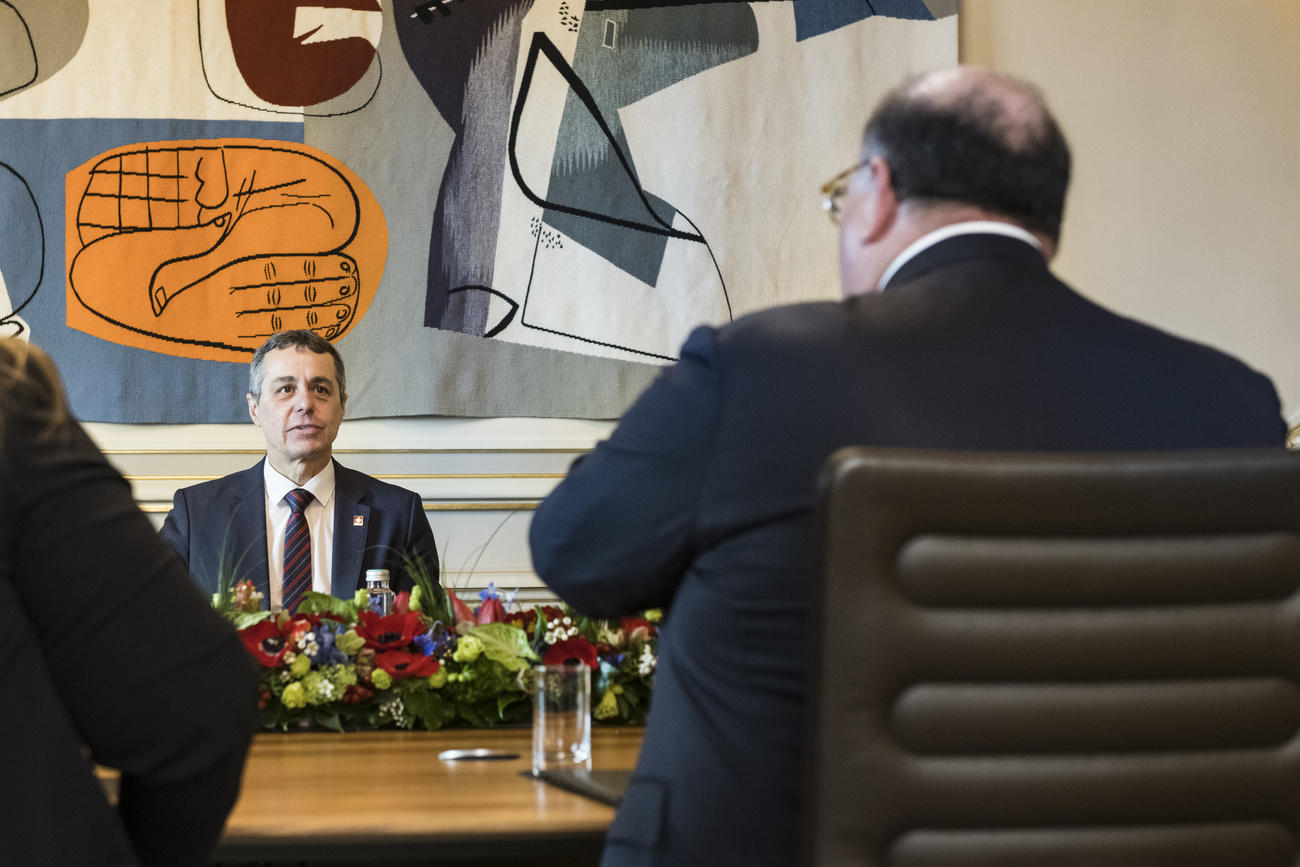
More
Swiss facilitate release of US citizen in Venezuelan prison
What’s in it for Switzerland?
Asked whether Switzerland gets paid for providing these good offices, the foreign ministry says it is only paid expenses. So why does it stick to offering the complex task?
“First, we want to be helpful,” retired former Swiss ambassador to Iran Philippe Welti told swissinfo.ch in 2013. “This might sound naive, but it’s certainly true.”
But there is more to it than that, he continued. “It’s also a good opportunity to remain in the minds of other governments as something of a useful unit – because normally when others are at war with each other, third parties become marginalised. And in the case of the Second World War, the marginalisation was very dramatic because it turned into a hostile attitude against Switzerland.
It certainly seems to win the small Alpine country some clout with the world’s superpowers of the day. Just last year, Switzerland suddenly featured large on the US diplomatic radar, allowing for a meeting between President Donald Trump and Swiss President Ueli Maurer in May 2019.
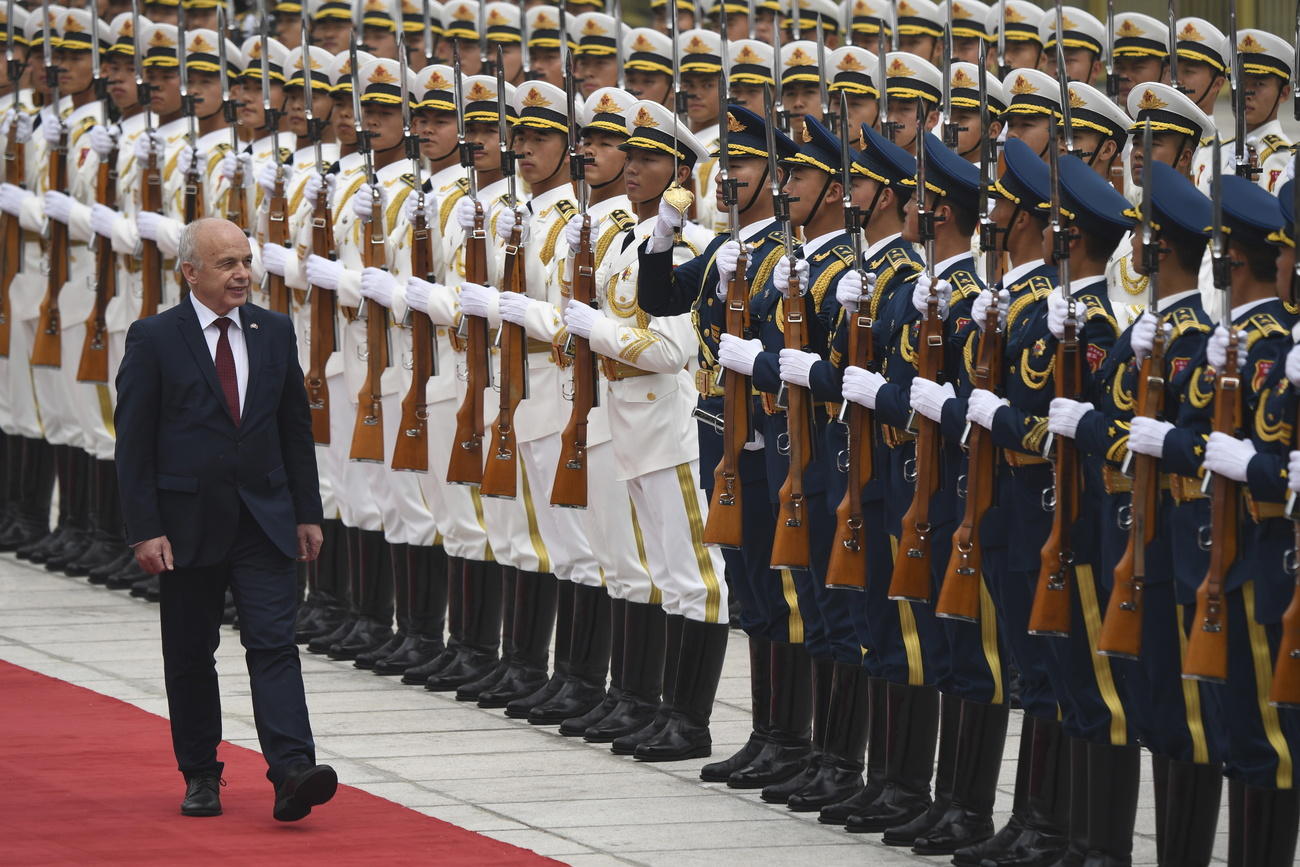
More
Swiss president continues on his ‘autocrat world tour 2019’
Given the ongoing tensions in Iran, that outsized role appears likely to continue.
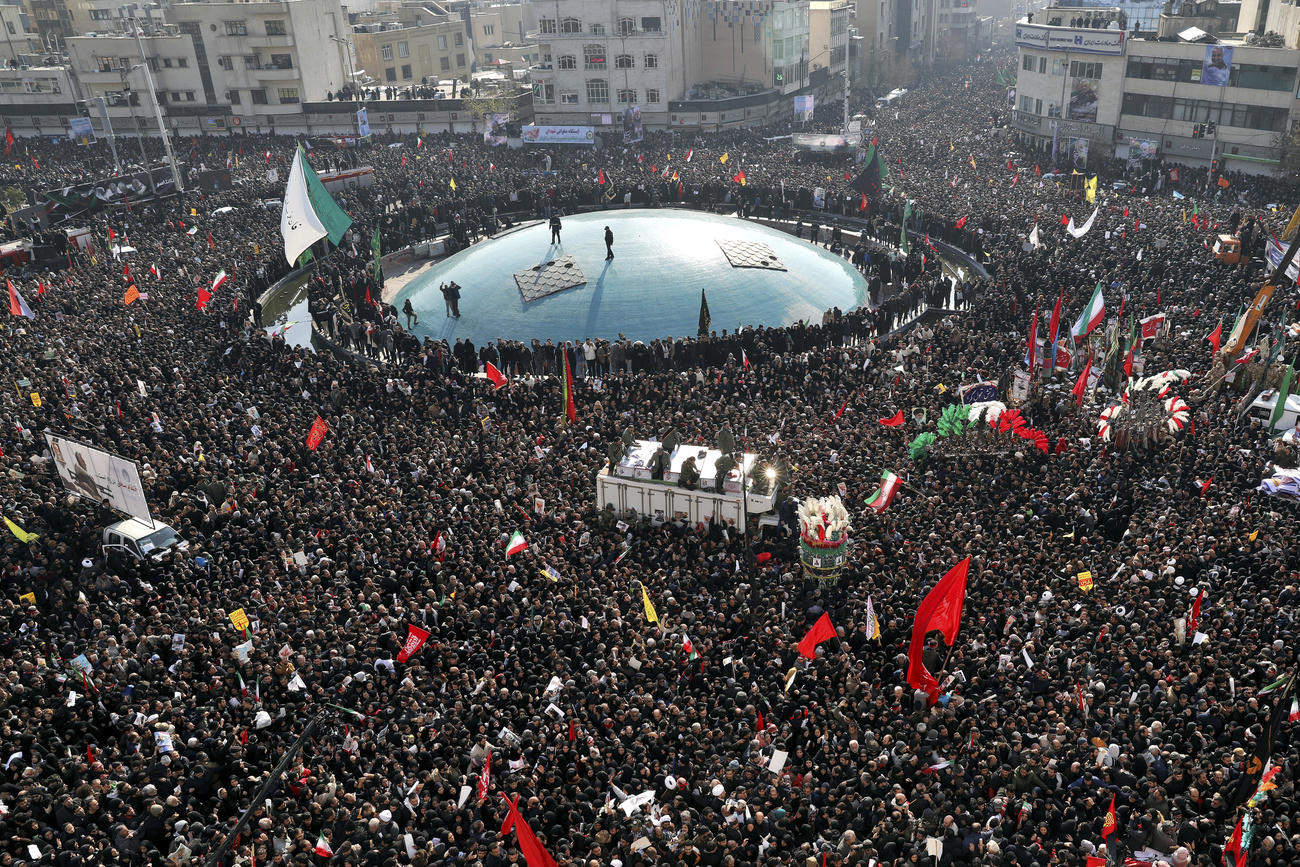
More
How ‘messenger’ Switzerland deals with the US and Iran

In compliance with the JTI standards
More: SWI swissinfo.ch certified by the Journalism Trust Initiative
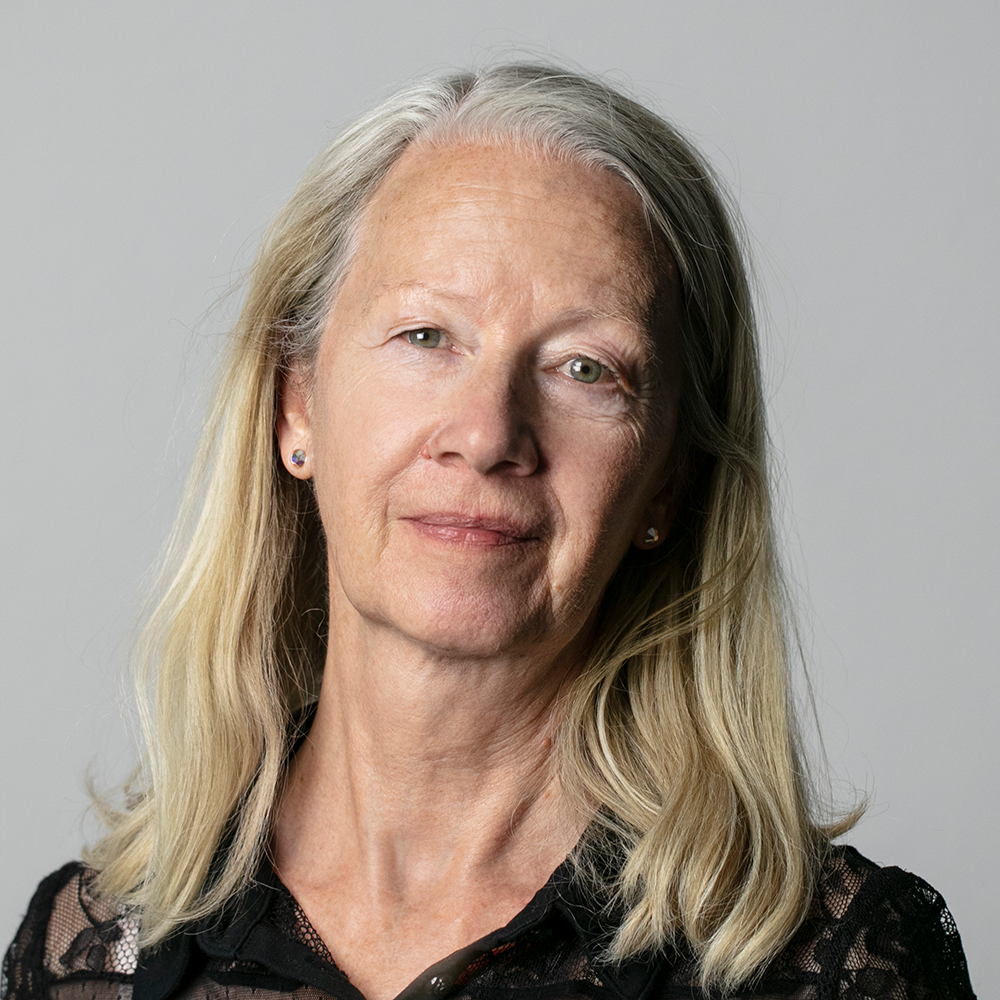
You can find an overview of ongoing debates with our journalists here. Please join us!
If you want to start a conversation about a topic raised in this article or want to report factual errors, email us at english@swissinfo.ch.